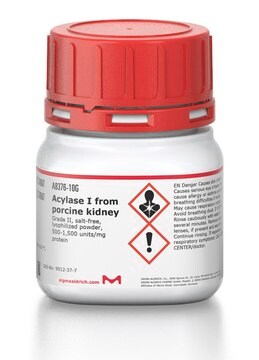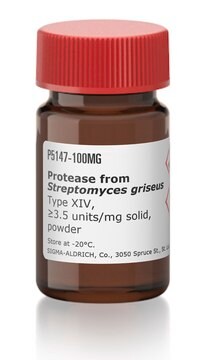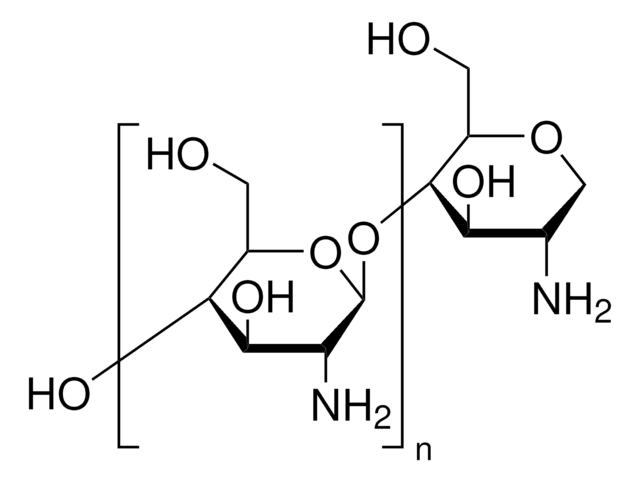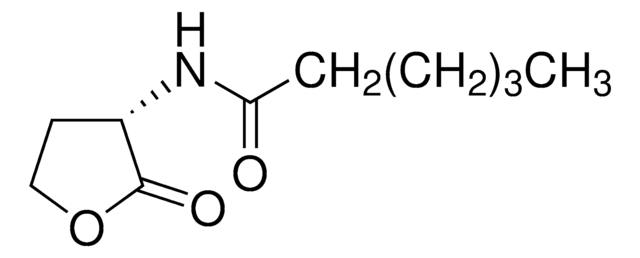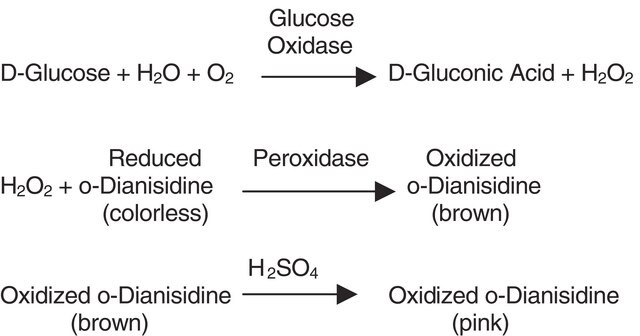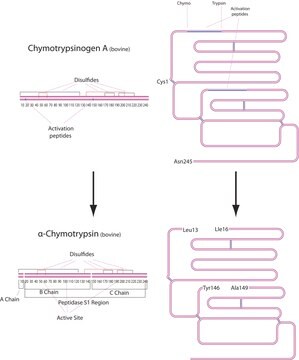A3010
Acylase I from porcine kidney
Grade I, lyophilized powder, ≥1500 units/mg protein
Synonym(s):
Aminoacylase, N-Acylamino acid amidohydrolase
About This Item
Recommended Products
type
Grade I
Quality Level
form
lyophilized powder
specific activity
≥1500 units/mg protein
composition
Protein, ≥60%
UniProt accession no.
storage temp.
−20°C
Gene Information
pig ... ACY1(396930)
Looking for similar products? Visit Product Comparison Guide
Application
Biochem/physiol Actions
Unit Definition
Analysis Note
signalword
Danger
hcodes
Hazard Classifications
Eye Irrit. 2 - Resp. Sens. 1 - Skin Irrit. 2 - STOT SE 3
target_organs
Respiratory system
Storage Class
11 - Combustible Solids
wgk_germany
WGK 1
flash_point_f
Not applicable
flash_point_c
Not applicable
ppe
Eyeshields, Gloves, type N95 (US)
Certificates of Analysis (COA)
Search for Certificates of Analysis (COA) by entering the products Lot/Batch Number. Lot and Batch Numbers can be found on a product’s label following the words ‘Lot’ or ‘Batch’.
Already Own This Product?
Find documentation for the products that you have recently purchased in the Document Library.
Customers Also Viewed
Our team of scientists has experience in all areas of research including Life Science, Material Science, Chemical Synthesis, Chromatography, Analytical and many others.
Contact Technical Service
